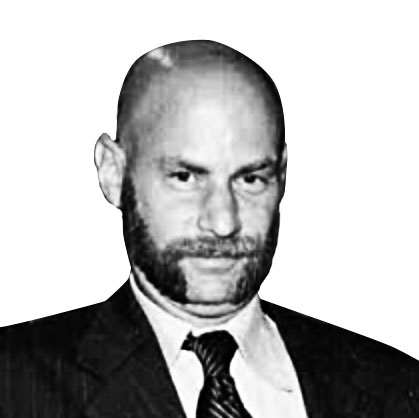Thanks to some intrepid reporting by The New York Times, which sued the Bureau of Prisons to release documents related to Jeffrey Epstein, I woke up on Tuesday to find that my real-time observations about him were now public records, “news fit to print.”
I’m actually quoted as two different people in their story, as the inmate companion who watched over Epstein before and after his first suicide attempt and the kitchen worker who had access to inside information about the night of Epstein’s death thanks to my friendship with another prisoner who occupied the cell next to his.
Though I can’t remember everything I wrote back in 2019, and lost all access to my own words after my own sentence at the Metropolitan Correctional Center ended a few months after he killed himself there, I recognize myself in the style and, especially, the description of special housing inmates as “animals.”
Often, prisoners who claimed to be suicidal and were moved to a special prison unit pursuant to those claims, came from the SHU (where the worst of the worst were housed) and confessed to me upon arrival that they’d told the prison psychologists they were thinking about ending it all just to get out of the incredibly noisy environment that virtually defines the SHU. That, or to score drugs from their dealers who had volunteered for suicide-watch duty so they could access their customers. So it goes behind bars.
The decibel level in general population was at times astounding — even in the dead of night. But from all reports, the situation was exponentially worse in the SHU. In a memo to the prison “psych,” I noted my assumption that the noise level in the SHU was what drove Jeffrey to kill himself had been refuted by my inmate friend, who occupied the cell next to Jeffrey's and reported that the SHU had been uncharacteristically quiet that night. I’d completely forgotten about that.
Not only had I and every other inmate companion who watched Jeffrey reported every 15 minutes on his activities, but I had made use of the prison computers and antiquated email system on a habitual basis, sending more or less stream-of-consciousness memos to the prison psychs that they no doubt read — as I was their inmate companion coordinator and an integral part of that program, which I found to be as inefficiently run as the rest of the since-shuttered prison — and had no qualms about expressing my opinions.
Seeing my voice in the Times story flashed me back to a most bizarre year in my life, a Lifestyles of the Rich and Infamous special, as I suffered through the flatulence and lumberjack snoring of cellmate Paul Manafort before I ended up spending many hours alone with Jeffrey Epstein as his inmate companion.
And reading the report—which showed unforced errors straight through from the intake form that said Epstein was Black and that he had no prior sex convictions straight through to the unmonitored call prison officials let him make to his girlfriend (after he said he was calling his long-dead mother) hours before he killed himself— brought back memories of what a poorly-run institution MCC truly was.
When Epstein and I talked, it was often about business (his experience with arbitrage and mine with the escort business) and making money, or his famous friends—none of whom, the Times reports, ever showed up to visit him there. He complained, reasonably, about the food, and asked for advice on how to handle prison life, which he clearly wasn’t equipped for.
It was only on the last day I watched Jeffrey that I got a hint he was depressed. I arrived on my shift to find him sitting on the dirty suicide cell floor eating his dinner.
When I asked why he’d chosen to use the floor of his cell as a dinner table, he half-heartedly waved me off and responded “It’s easier this way.” It was at that moment it occurred to me he’d given up hope. Yes, there were other times I observed Jeffrey drifting off mentally, apparently pondering his fate. But that night, when he ate while sitting on the floor stands out in my mind.
The next day, he was moved back to the SHU. A week after that, the unit officer came to my cell, and instead of letting me and my bunky out to eat breakfast, told us: “You guys are locked in. Epstein killed himself and the prison is overrun with FBI.” There were no visitors, even lawyers, allowed in for weeks after that.
To this day, people hypothesize that Jeffrey was somehow murdered . But as I indicated in my memos to the head psych, I know he ended his own life. If nothing else, MCC was a very secure prison. The idea that somebody could get in, kill Epstein, and then get out is preposterous. And if there was a conspiracy to murder the man, it would involve so many people that at least a few would crack under interrogation.
Jeffrey realized he had nothing to look forward to save spending his golden years locked up with societal misfits. His life was over — and he knew it. And he responded in a manner which he felt was rational. He killed himself.







